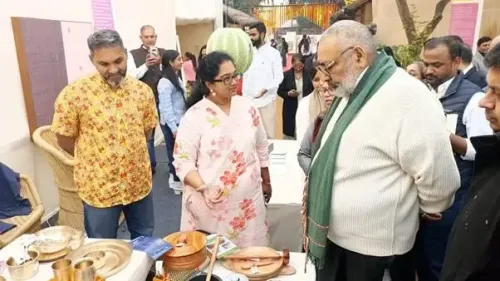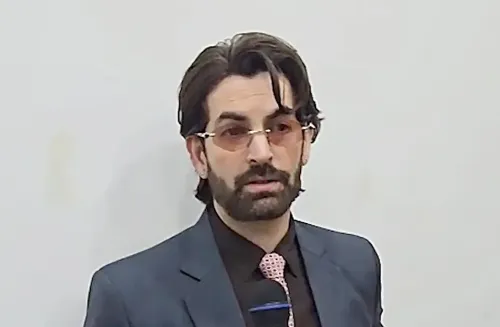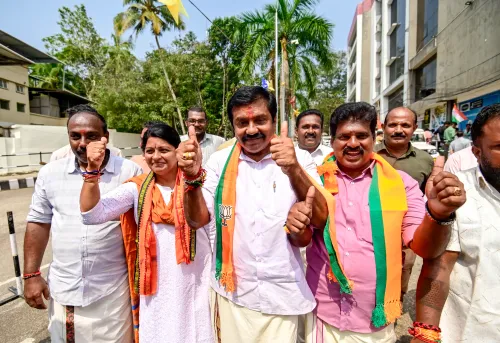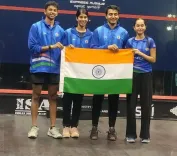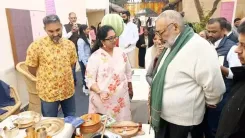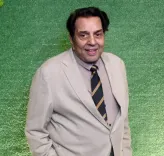Should BJP MP Praveen Khandelwal Advocate for Real-Time Sign Language Interpretation in Parliament?
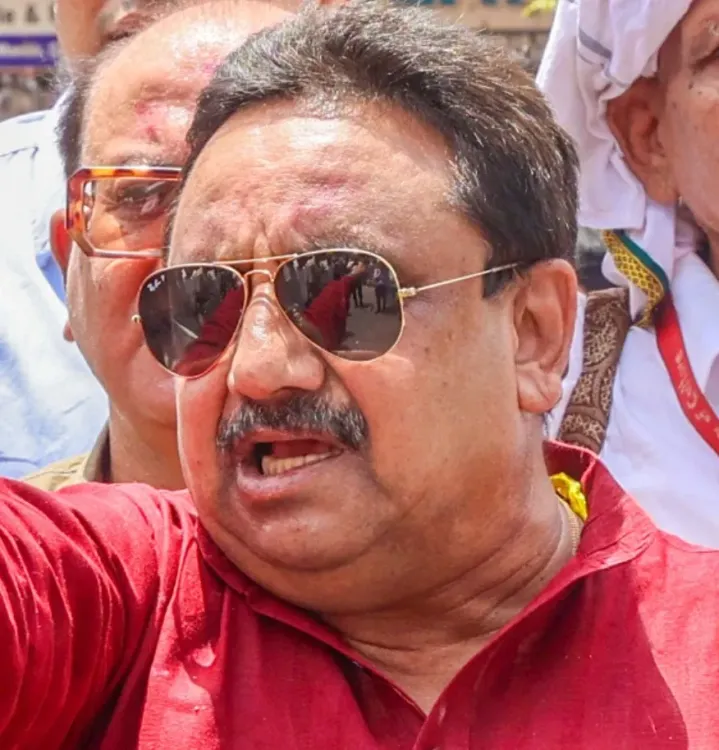
Synopsis
Key Takeaways
- Proposal for ISL interpretation in Parliament
- Enhancing accessibility for the deaf community
- Alignment with global best practices
- Over 63 million deaf and hard-of-hearing individuals in India
- Strengthening democratic participation for all
New Delhi, July 7 (NationPress) In a significant push for inclusive governance, Chandni Chowk MP Praveen Khandelwal from the BJP has reached out to Union Minister of Parliamentary Affairs Kiren Rijiju, requesting the introduction of real-time Indian Sign Language (ISL) interpretation for all parliamentary sessions.
The initiative aims to render the "temple of democracy" accessible to the deaf and hard-of-hearing community in India, aligning with constitutional principles and global standards.
In his comprehensive letter, Khandelwal highlighted that over 70 countries—including New Zealand and Kenya—already provide sign language interpretation during legislative broadcasts.
He asserted that India, having acknowledged Indian Sign Language as a legitimate language and established the Indian Sign Language Research and Training Centre, should now advance by integrating ISL into live parliamentary coverage.
Khandelwal proposed that ISL interpretation be simultaneously broadcast on Sansad TV, the Parliament website, and all official digital platforms, ensuring clear visibility and high-quality standards.
He underscored that this reform would not only uphold the Rights of Persons with Disabilities Act, 2016 but also fulfill India’s commitments under the United Nations Convention on the Rights of Persons with Disabilities.
Citing the 2011 Census and WHO estimates, Khandelwal pointed out that over 1.9 million Indians have hearing disabilities, with the larger deaf and hard-of-hearing population exceeding 63 million.
For many, ISL serves as their primary communication method. “Democracy must be accessible to all,” he emphasized, noting that real-time interpretation would enable millions to engage in debates, legislation, and national discussions.
His letter also referenced Prime Minister Narendra Modi’s vision of “Sabka Saath, Sabka Vikas, Sabka Vishwas, Sabka Prayas,” advocating that accessibility reforms are crucial to realizing this inclusive agenda.
Khandelwal offered to facilitate discussions with subject matter experts, accessibility professionals, and civil society organizations to bolster this initiative.
The MP called for inter-ministerial collaboration among the Ministry of Social Justice and Empowerment, the Ministry of Information and Broadcasting, and the secretariats of both Houses of Parliament to actualize the proposal.
He described this move as an opportunity for India to reaffirm its leadership in democratic innovation and social equity.
The Ministry of Parliamentary Affairs is anticipated to review the proposal in forthcoming administrative briefings.
If implemented, this reform would signify a historic advancement toward making Indian democracy genuinely participatory for all citizens.


